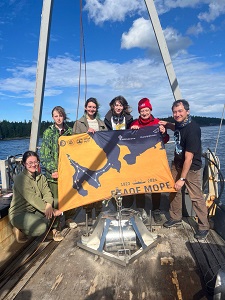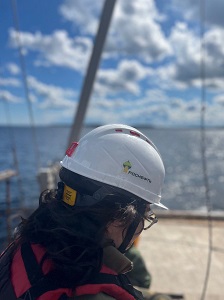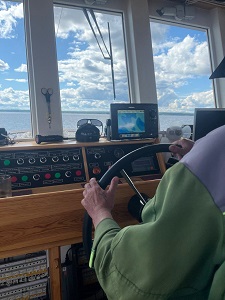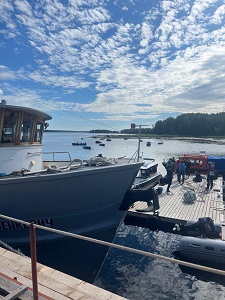Please activate JavaScript in your browser to use all interface options.
Rosneft and Innopraktika Launch Research Expeditions in the White Sea Waters
12 July 2024
The second field season of hydrobiological research organized by Rosneft and Innopraktika, a non-governmental development institute, started in the White Sea.
As part of the expeditions, two research vessels are working in the western and eastern parts of the water area: the «Professor Zenkevich» and the «Kartesh». The scientists repeat the route of the famous Soviet hydrobiologist Konstantin Deryugin, who explored the White Sea in 1922-1926. The purpose of the current study is to obtain  data on the current state of the White Sea biota and to assess changes in the ecosystems of the region that have occurred over the last 100 years.
data on the current state of the White Sea biota and to assess changes in the ecosystems of the region that have occurred over the last 100 years.
Expedition work is carried out on the same locations and using the same methods that Konstantin Deryugin used a century ago. However, today researchers, along with classical methods, also apply modern techniques to study samples taken from the seafloor, including metagenomic analysis of benthos and plankton. High level of accuracy and authenticity are needed to provide a scientifically backed explanation of how the climate and ecology of the Arctic has changed over a century.
 The work in the western part of the White Sea is carried out on the basis of the White Sea Biological Station of the Lomonosov Moscow State University. Together with the scientists the students of the university also got the opportunity to join the expedition. Desk-based processing of the extracted material is carried out in the laboratories of Moscow State University, and the facilities of the Full Genome Sequencing Center, established with the support of Rosneft, are also used for a number of works.
The work in the western part of the White Sea is carried out on the basis of the White Sea Biological Station of the Lomonosov Moscow State University. Together with the scientists the students of the university also got the opportunity to join the expedition. Desk-based processing of the extracted material is carried out in the laboratories of Moscow State University, and the facilities of the Full Genome Sequencing Center, established with the support of Rosneft, are also used for a number of works.
The Rosneft-Innopraktika project will result in the creation of a comprehensive database of scientific data and the development of methodological bases for monitoring the ecological state of the Western Arctic seas using new-generation technologies.  This information and tools are necessary for long-term planning of sustainable development in the Arctic region of Russia.
This information and tools are necessary for long-term planning of sustainable development in the Arctic region of Russia.
Rosneft is committed to environment-oriented campaigns and nature preservation activities. Rosneft’s Arctic Research Centre implements the most ambitious program for studying the Arctic region since Soviet times. More than 50 expeditions have been carried out over 12 years, during which scientists have studied hydrometeorological, geological and biological features of the region, as well as studied bioindicator species of  Arctic ecosystems: polar bear, wild reindeer, Atlantic walrus and white gull. It has been the source of a unique body of information on Arctic climate, nature and wildlife.
Arctic ecosystems: polar bear, wild reindeer, Atlantic walrus and white gull. It has been the source of a unique body of information on Arctic climate, nature and wildlife.
Based on the research results, several ecological atlases have already been created: «Seabirds of the Russian Arctic», «Species - biological indicators of the state of Arctic marine ecosystems» and «Marine Mammals of Russia», «Kara Sea», «Laptev Sea», «Barents Sea» and others. Rosneft is also implementing a comprehensive programme for the conservation of bio-indicator species in the Russian Arctic.
Rosneft Information Division
Rosneft Oil Company
July 12, 2024

-315xx70.png)

